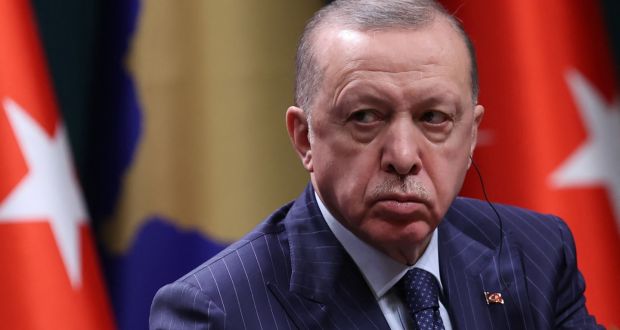Alwaght- While already grappling with an economic crisis that showed itself with a historic slump of the lira price, Turkey finds Ukraine war a fuel on the fire, dimming Erdogan government's outlook for an economic improvement.
Russia and Ukraine share a maritime border with Turkey, and in recent years Turkey has increased its cooperation with the two countries in the fields of energy, economy, military, trade. Turkey earns substantially from tourism as Russian and Ukrainian tourists make up the largest number of tourists visiting this country.
But in the meantime, Russia's invasion of Ukraine has caused Turkey to feel more threatened by the economic consequences of this war than any other country due to its fragile economic situation, and Ankara has sought to resolve it through diplomatic means.
Significance of economic relations with Russia and Ukraine
The Turkish government's move to implement its economic model, which included lowering interest rates to boost exports and investment, contain inflation, and stabilize national currency, has caused the lira to experience a fragile situation in recent months. The lira fell 44 percent against the US dollar and inflation rate rose to more than 50 percent. In addition to dollar price surge, the price of the basic goods and especially energy dramatically increased, adding to economic fragility and stirring public discontentment with the government's economic policies.
With the start of war, Turkey, emphasizing Ukrainian sovereignty, offered mediation for quicker end to the crisis. Ankara's pro-peace efforts are driven by its economic relation to Ukraine and Russia in a variety of ways. For example, in the field of energy, it is dependent on Russia and more than 40 percent of its gas is supplied by Russia. Its trade with Russia increased to $34.7 billion last year. Due to its dependence on Russia, especially in the energy field, Turkey declined to show advocacy to anti-Russian sanctions by the US and its Western allies, despite voting in favor of the UN General Assembly's anti-Russian resolution.
Turkey has considerable trade volume with Ukraine, too. Its trade with Ukraine increased to $7.4 billion last year, of which $2.5 billion share of Turkish exports. In addition to their close cooperation in military sector, Turkey is one of the largest foreign investors in Ukraine. It is noteworthy that Russia and Ukraine hold a share of 70 percent of the Turkish sunflower oil imports.
The Ukrainian crisis also weighed on the transportation in Turkey, increasing the transit costs by 50 percent. This is a reason for rallying food prices, having in mind the country relies on Russia and Ukraine for 80 percent of its grain imports.
Tourism, Turkish economy's Achilles heel
The largest impact of the Russian Ukraine campaign on the Turkish economy is felt by tourism sector which is a considerable cash injector to the government treasury. Negative impacts on this industry can influence the whole of the Turkish economy. Russian and Ukrainian tourists account for 27 percent of the total number of tourists visiting Turkey, and only in 2021 about 5 million Russians and over 2 million Ukrainians visited Turkey. The income earned from them accounts for 15 percent of the total Turkish tourism incomes.
Referring to the effects of war, Bulent Bulbuloglu, the chairman of South Aegean Hoteliers Union, said that just in a single day after the Russian operation in Ukraine started, the reservations in Turkey dropped 70 percent.
"The worst possible scenario is $5-6 billion drop of Turkish tourism revenues from the two countries in 2022," he went on.
Turkey, meanwhile, has sought to increase its tourism revenues to $35 billion this year, but Ukraine crisis could severely affect this targeting if it does not end. Despite its equivocal policy concerning the crisis, Turkey tries to achieve its goals by using diplomatic grounds and playing a role as a mediator.
Turkey resorted to a proposal that does not appeal to the West. President Recep Tayyip Erdogan proposed doing business with Russia using Russian ruble to avoid drastic impacts on trade with Moscow. Still, the country's economic conditions, which are presently Erdogan's Achilles heel in home political competitions, can move to further deterioration. This would make even harder for Erdogan and his party the already bumpy road to victory in 2023 municipality elections which work like a referendum that can either save Erdogan or end his political life.



























